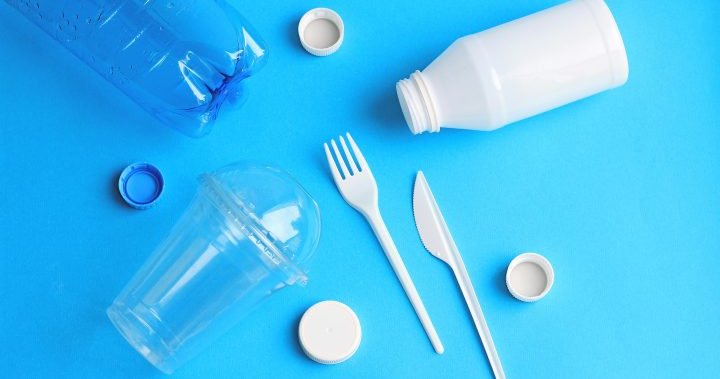
Will banning single-use plastics impact our health? Here’s what we know
Global News
There is growing evidence that the use of plastic products leads to skin contact, ingestion and inhalation of large amounts of microplastics and toxic substances.
A ban on single-use plastics could lower the health risks to humans of toxic chemicals, according to one expert, as Canada moves towards eliminating plastic waste.
Removing plastic from food packaging is a “big step forward” in helping alleviate the health hazards posed by plastics and plastic chemicals, said Erica Cirino, communications manager at Plastic Pollution Coalition.
The federal government has a 2030 target to cut all plastic waste from ending up in landfills or as litter on beaches, in rivers, wetlands and forests.
On Monday, Environment Minister Steven Guilbeault laid out the Liberal government’s plans on how the country will get there.
By the end of 2022, Canadian companies will no longer be able to import or make plastic bags, cutlery, takeout containers, ring carriers, stir sticks and straws, barring a few targeted exceptions to recognize specific cases.
Their sale will be prohibited by the end of next year and exports by the end of 2025.
“Taking steps like banning certain types of plastics, especially those that might put people at high risk of exposure to toxins, is always a good idea,” said Cirino, adding more needs to be done tackle the crisis.
She said the release of plastics and other chemicals has reached a point where it’s hard to keep track of how much is out there.
